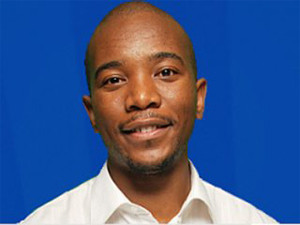
A new billing system that will allow residents to receive their municipal bills via SMS is a step closer to giving Johannesburg smart city status, says the Democratic Alliance (DA).
Leader of the City of Johannesburg (COJ) DA caucus, Mmusi Maimane, says the party requested the city more than a month ago to use electronic forms of communication to deliver monthly municipal bills to residents.
"There are more cellphones in this country then there are people," says Maimane. "So it becomes important to engage people with the device that they would have in front of them."
The COJ reportedly started sending residents MMSes last week offering a new service that will allow them to receive their monthly municipal bills via SMS, and only by post or e-mail every three months.
During the trial period over the next three months, residents will be receiving their invoices in the normal manner, but thereafter, if they ignored the original SMS, will be presumed to have accepted the new system.
This is in an effort to provide a value-added service to residents, as well as preserve the environment.
COJ revenue department spokesperson Stan Maphologela could not be reached for comment.
Following suit
In response to the possibility of complaints from residents that they have not been adequately informed about the new billing system, Maimane says there will always be challenges when making a change in a community.
"Cape Town has been implementing this particular system for quite a while now. They have found great success with it," he says. "People actually wait for their SMSes and depend on it. I hope Johannesburg residents will follow suit."
Maimane notes the new SMS system should, in his opinion, not replace the traditional billing system, but should rather be used as a supplement to other platforms.
"This is only a step in the right direction for the city," says Maimane. "We are far from done, because the next thing that needs to happen is residents have to be able to interact with the city using cellphones. You must be able to have a mobile device that lets you log your queries, and that must be taken as seriously as a fax or e-mail."
Billing woes
The City of Johannesburg's billing crisis has been making headlines since 2011. In March 2012, deputy minister in the Presidency for performance monitoring and evaluation, Obed Bapela, met with executive mayor Parks Tau and Gauteng MEC for local government and housing, Humphrey Mmemezi, after a flood of complaints to the presidential hotline.
Complaints included inflated bills and cut-offs due to technical glitches and mismanagement.
In December 2011, several top city officials and entities such as City Power and Johannesburg Water were served with papers by Schindlers Attorneys, Conveyancers and Notaries on behalf of 13 entities, which represent more than 200 000 residents, for not following proper legal procedure when threatening cut-offs.
As a result, an out-of-court agreement was made an order of the South Gauteng High Court, forcing the city to issue correct bills, inform people if amounts are outstanding, and give 14 days' notice before cutting them off.
In September 2012, the DA called on the auditor-general to probe Joburg's billing crisis and its query resolution procedure, saying the crisis is far from over.
Share